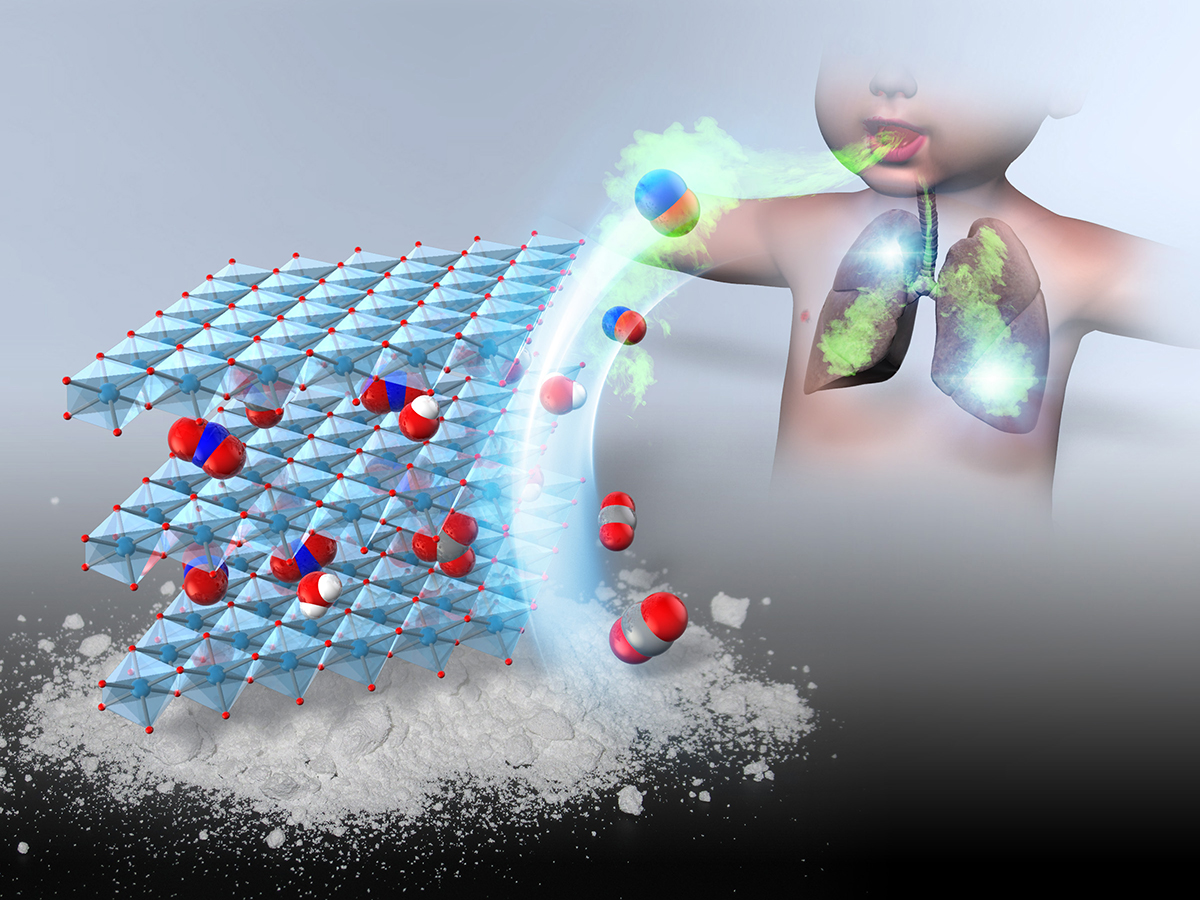Hydrogen sulfide and nitric oxide are gases with useful bio-activities, such as anti-oxidation, anti-inflammation and vasodilation.
TSUKUBA, Japan, Aug. 24, 2020 /PRNewswire/ -- Hydrogen sulfide (H2S) and nitric oxide (NO) are gases with useful bio-activities, such as anti-oxidation, anti-inflammation and vasodilation. H2S is an ingredient in hot springs and long known to have positive effects on the skin and cardiovascular system. NO, a selective and fast-acting pulmonary vasodilator, is used in hospital intensive care units to treat severe respiratory distress, including the so-called "blue-baby syndrome" caused by pulmonary hypertension. In addition, the inhaled NO therapy is currently under clinical trials for COVID-19 infection.

However, the application of these gases is limited since they are toxic at high concentrations and need cumbersome high-pressure gas cylinders. For example, inhaled NO is an advanced medical treatment requiring expensive medical instruments and a trained operator to control and monitor the purity and dose of the NO.
To address these issues, a WPI-MANA research team of Shinsuke Ishihara and Nobuo Iyi has developed solid materials that slowly and autonomously release small amounts of H2S and NO when they contact with CO2 in air. The materials are based on layered double hydroxide (LDH), a clay mineral, which incorporates gas source anions (HS- or NO2-). The materials exchange anions with CO2 and release H2S and NO.
The concentration and duration of gas release are controllable by adjusting various factors, such as composition of materials, diffusion of gas molecules and anions, and chemical equilibrium.
The team's low-cost and safe-to-handle materials could be used to create a disposable medical system for controlled release of bio-active gases under ambient air. Actually, the team demonstrated the potential utility of new gas-release system by creating a portable, hand-operated (and therefore battery-free) respirator that can supply therapeutically useful quantities of NO into inhaled air.
The work shows that LDH is an attractive material for gas release, and the CO2-driven system is potentially useful for expanding opportunities of utilizing functional gases in a variety of applications.
This research was carried out by Shinsuke Ishihara (Principal Researcher, Frontier Molecules Group, WPI-MANA, NIMS) and Nobuo Iyi (Special Researcher, Soft Chemistry Group, WPI-MANA, NIMS).
NATURE COMMUNICATIONS, Jan. 23, 2020:
https://doi.org/10.1038/s41467-019-14270-3
View original content:http://www.prnewswire.com/news-releases/wpi-mana-team-new-solid-materials-enable-broader-application-of-medical-gases-301116789.html
SOURCE International Center for Materials Nanoarchitectonics (WPI-MANA), National Institute for Materials Science (NIMS)




